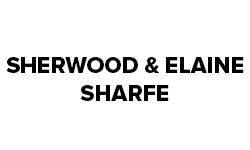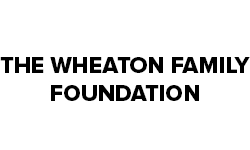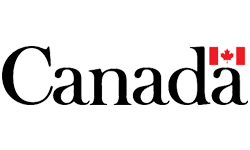Part C: Engaged Citizens Resources
LESSON RESOURCES
All websites accessed November 2017.
- https://treaty6education.lskysd.ca
- http://treaty6education.lskysd.ca/sites/treaty6education.lskysd.ca/files/SOCIAL%20gr5.pdf grade 5 Social, but suitable for grade 7 students.
- The Parliament of Canada – Democracy in Action
http://www.parl.gc.ca/about/parliament/publications/democracyinaction/democracy-e.asp
- Parliament of Canada website: – https://www.parl.ca
- Our Country, Our Parliament: https://lop.parl.ca/About/Parliament/Education/ourcountryourparliament/html_booklet/canada-s-democracy-action-e.html
- Forms of Government – https://www.scholastic.com/teachers/articles/teaching-content/forms-government/
- Levels of Government Responsibilities – “Who Does What” – http://www.youtube.com/watch?v=AVE3OsR5W-0
- Rights and Responsibilities – http://www.youtube.com/watch?v=DA6QAdKOmtA
- The Levels of Government: https://www.youtube.com/watch?v=7C8uDuhLqvg
- How Canadians Govern Themselves – http://publications.gc.ca/collections/Collection/X9-11-2005E.pdf
- Levels of Government Responsibility http://www.parl.gc.ca/about/parliament/senatoreugeneforsey/touchpoints/index-e.html
- World map – http://worldmap.canadiangeographic.ca/
- Natural Resources Canada – https://www.nrcan.gc.ca/home
- Republic of China website – http://government.mychinastart.com/
- Constitution of the People’s Republic of China – http://english.peopledaily.com.cn/constitution/constitution.html
- Information regarding First Nations people and Treaty negotiations
- Pre-1975 Treaties and Treaty First Nations in Canada Infographic –
- Treaty Texts
- First Peoples of Canada website: http://firstpeoplesofcanada.com/ Search for specific treaty areas
- Indigenous Treaties of Canada: https://www.thecanadianencyclopedia.ca/en/article/aboriginal-treaties
- Choose Your Voice: http://www.chooseyourvoice.ca
CROSS CURRICULAR CONNECTIONS
Language Arts
Themes
- Personal and Philosophical – Students will reflect upon:
- self-image and self-esteem; and,
- self and life, and on their beliefs and values and those of their society.
- Social, Cultural, and Historical – Students will:
- look outward and examine their relationships with others, their community, and that of the world; and,
- consider the historical context.
- Environmental and Technological – Students will:
- explore the elements of the natural and constructed world and the role of technology and related developments in their society.
- Communicative – Students will:
- consider the role of communication in their lives and the ideas and technologies that help people become effective communicators.
Treaty Education
- TR7: Analyze to what extent each of the signatories to treaty meets their respective obligations.
- SI7: Examine Oral Tradition as a valid way of preserving accounts of what transpired and what was intended by entering into treaty.
- HC7: Examine the Indian Act, including its amendments, and explore the effects it has on the lives of First Nations.
- TPP7: Investigate the impact of Bill C31 on the equality of genders under the Indian Act.
Health
Understanding, Skills, and Confidences (USC)
- USC7.4 Demonstrate a personalized and coherent understanding of the importance of nurturing harmony in relationships (with self, others, and the environment), and apply effective strategies to re/establish harmony when conflict arises.
- USC7.7 Investigate and express an understanding of possible discrepancies in morals (e.g., beliefs, ethics, virtues, understanding of right/wrong) that may determine and/or affect the commitment to the well-being of self, family, community, and the environment.
Science
Life Science: Interactions within Ecosystems (IE)
- IE7.1 Relate key aspects of Indigenous knowledge to their understanding of ecosystems. [CP]
- IE7.2 Observe, illustrate, and analyze living organisms within local ecosystems as part of interconnected food webs, populations, and communities. [SI]
- IE7.4 Analyze how ecosystems change in response to natural and human influences, and propose actions to reduce the impact of human behaviour on a specific ecosystem. [DM, CP]
Earth and Space Science: Earth’s Crust and Resources (EC)
- EC7.1 Analyze societal and environmental impacts of historical and current catastrophic geological events, and scientific understanding of movements and forces within Earth’s crust. [SI]
- EC7.2 Identify locations and processes used to extract Earth’s geological resources and examine the impacts of those locations and processes on society and the environment. [SI, DM, CP]
- EC7.3 Investigate the characteristics and formation of the surface geology of Saskatchewan, including soil, and identify correlations between surface geology and past, present, and possible future land uses. [DM, SI]
GLOSSARY
“Text from Vocabulary.com, Copyright ©1998-2016 Thinkmap, Inc. All rights reserved.”
Authority
If you have the authority to do something, you have the right or power to do it. You are the big cheese. Or, if you know more about a topic than most, you are an authority on that topic.
Giving someone authority grants them the power to make important decisions or have accepted opinions. When you leave your kids with a babysitter, you give her the authority to put them to bed at 7 p.m., no matter how much they insist you let them stay up until midnight. You’ll feel more confident leaving the babysitter in charge of bedtime decisions if she’s written two books on the subject and is an authority, or renowned expert, on children’s sleep habits. Being an authority on children’s sleep habits helps your babysitter enforce that 7 p.m. bedtime, but it may not convince the kids.
Democracy
Whether you’re talking about your glee club or a powerful nation, the word democracy describes government based on participation of the people, either directly or through elected representatives.
Democracy traces back to the Greek words demos, meaning “people,” and kratia, meaning “power.” “People power” remains central to democracy, whether you’re describing a country or a much smaller organization. If your glee club is run as a democracy, then everybody gets to vote on questions like what you’re going to sing and what kind of outfits you’re going to wear. Because democracy assumes some idea of equality, it’s often used to mean a just society, one in which everyone is treated equally.
Dictatorship
A dictatorship is a government or a social situation where one person makes all the rules and decisions without input from anyone else.
Dictatorship implies absolute power — one person who takes control — of a political situation, a family, a classroom or even a camping expedition. In government, a dictatorship leaves no room for input from anyone who is not the top guy or gal. The noun comes from the late 14th century Latin word, dictare, which means to “repeat or say often.” In a dictatorship, one person keeps repeating the same command: “My way or the highway.”
Force
If you’ve ever walked outside in a blizzard, you’ve felt the force, or strength, of the wind and snow pushing against your body.
Force often describes a physical energy that can be seen or felt, but it has other meanings. A powerful person can exert a force just by using particular words or body language. Written words can also have a force, or strong influence. When it’s a verb, force means to make something happen using physical strength or some other powerful effort, which is what you do when you force the wrong key into a keyhole.
Influence
Influence is the power to have an important effect on someone or something. If someone influences someone else, they are changing a person or thing in an indirect but important way.
Sometimes a person who influences another doesn’t intend to have any effect, but sometimes they are using influence to benefit themselves. An example of a personal benefit or advantage would be the use of political influence. Influence is also a verb, from Latin influere to flow in.
Oligarchy
Does it ever feel like just a few people have all the power? If it’s a government that’s run like this, it’s an oligarchy. A country that has this form of government is an oligarchy too.
The political term, oligarchy, comes to English from the Greek with its meaning intact – a form of government run by a small number of people such as wealthy landowners, royalty or powerful military figures. If you say that you can’t fight the oligarchy, you mean the leaders of such a place. Sometimes the word refers to the few powerful people in charge of a large company or system. A financial oligarchy might try to block reform.
Power
Someone with power has physical strength or they’re in control of things. So a weakling who’s in charge of a business still has a lot of power.
Power comes from the Latin word potere, which means “to be able.” But things with power are much more than able — they’re able to exert a lot of force. “The powers that be” are those who hold authority, and “the power behind the throne” refers to the people who exert influence without being formally in charge. When used as a verb, power means “to supply with mechanical or electrical energy,” as in a nuclear-powered submarine.
APPENDIX

Marketing and Communications, University of Saskatchewan
Permissions for use from U. of S. Dept. of Ed.
© 2024 Concentus Citizenship Education Foundation Inc. All Rights Reserved.









